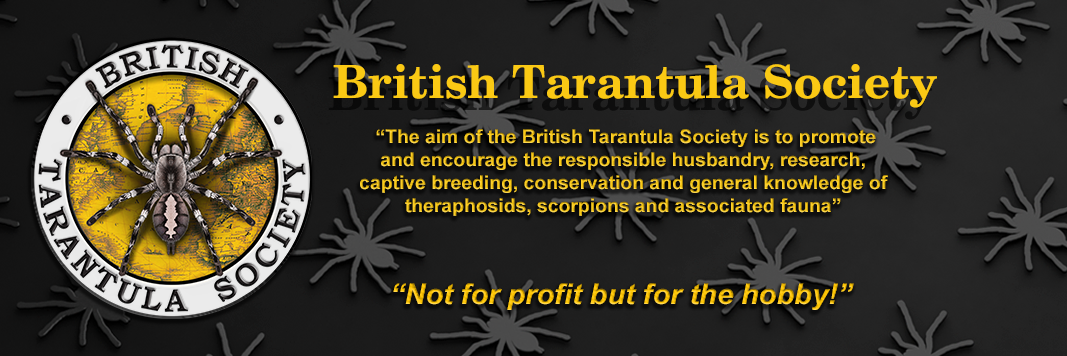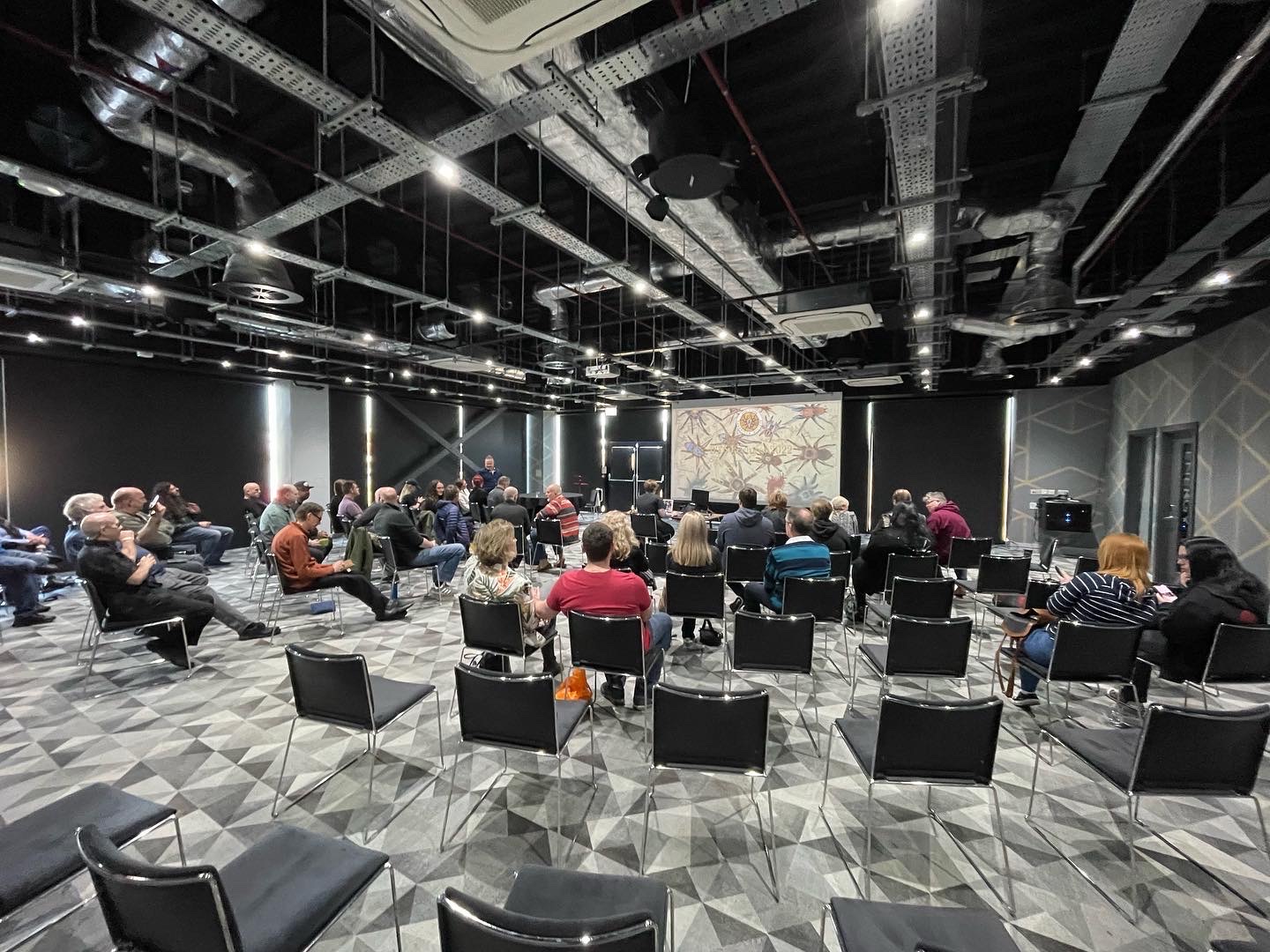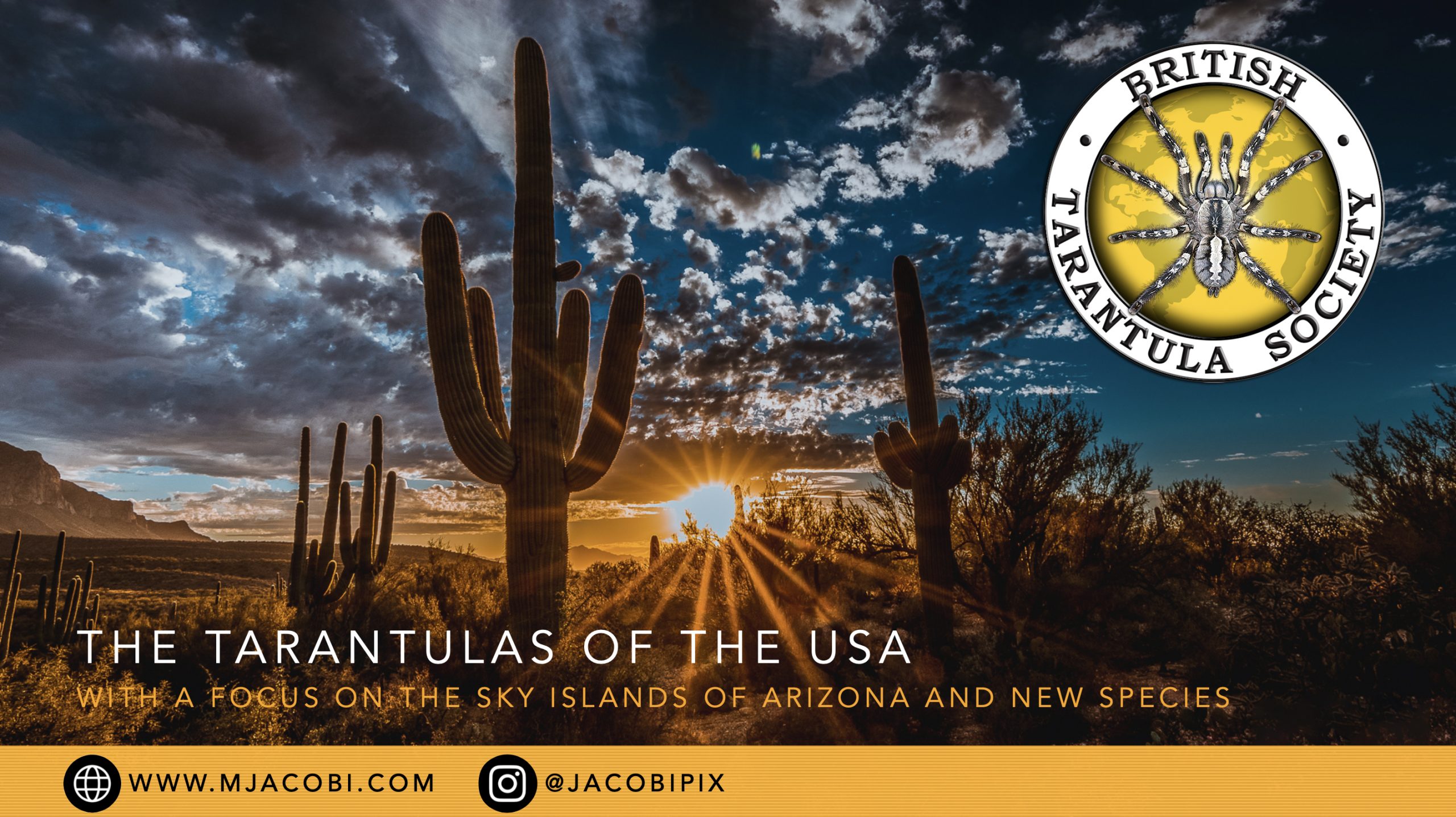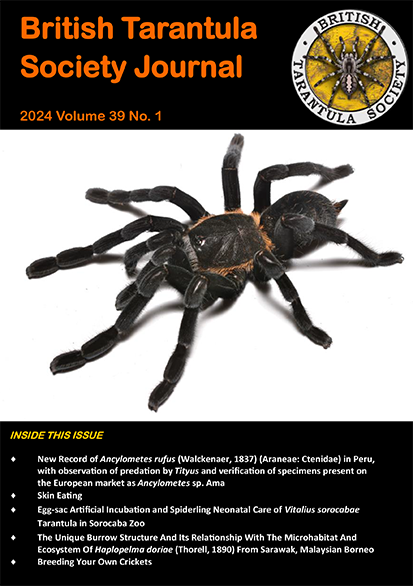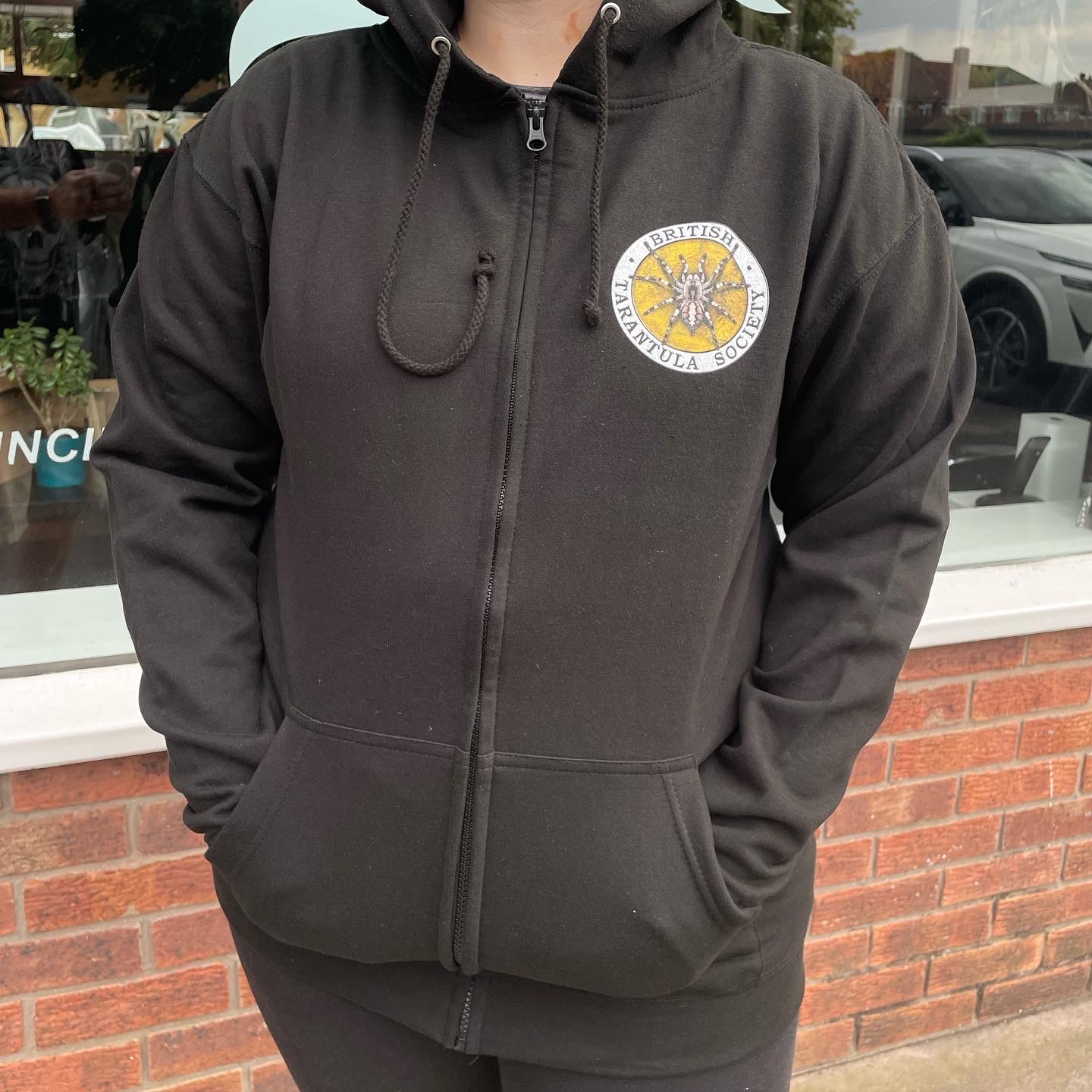We are proud to announce that on the 15th February 2005, the BTS Committee – after having spent some months debating a discussion paper – passed a motion, which authorised the setting up of the British Tarantula Society Overseas Research Grant. This essentially means that the BTS will now fund an annual research grant of £500 (approximately $900), which will be aimed specifically at overseas researchers from second and third world countries.
The primary role of the BTS Overseas Research Grant is to fund and encourage research into the taxonomy, distribution, behaviour, morphology and the conservation of the Theraphosidae in developing countries. Proposals for research projects will be considered for other mygalomorph spider families and other arachnid groups such as the order Scorpiones – if a relevant theraphosid project is not forthcoming.
It is the intention of the BTS Committee that the BTS Overseas Research Grant will encourage both the undertaking of original research and scientific papers (which, can be published in an academic journal of the authors choice) and the writing of original and well-researched popular scientific articles. These will be aimed at both educating and entertaining the BTS Membership and it is intended that they will be viewed in both the BTS Journal and in an unabridged format, with copious photographs on the BTS Website. This of course means that the successful applicant will be expected to not only write a scientific paper for an academic journal but also publish a series of ongoing popular articles with photographs and possibly video footage, which can be showcased on the BTS Website and hopefully, allow the membership to witness and observe active field research. The BTS Committee believe that this new and exciting concept in awarding research grants, will enable the societies membership – which is of course paying for the research grant – to share in the excitement of the field research that it funding and have some sense of inclusion in the project as a whole. The BTS Committee would also remind its membership that the setting up of the BTS Overseas Research Grant also honours the long-term objectives of the society – to encourage the research and conservation of the Theraphosidae as laid down in its founding charter and constitution. It is also hoped that if a given research project particularly appeals to the membership, then it will be possible for individual members of the BTS to raise additional funds privately to assist in topping up the original grant or purchasing a specific piece of equipment. Whatever, for the first time in the history of research grants, the membership of a society will be able to observe the undertaking of the project that they are funding? The research project will of course be completely independent. You may watch but not interfere!
The BTS Overseas Research Grant is aimed specifically at overseas researchers attached to universities, colleges, zoos, and museum departments, government wildlife departments and independent grant aided research and conservation agencies in developing countries. All applicants will be expected to have achieved a minimum of a basic degree status or be enrolled on a degree course. References, both departmental and from independent sources will be actively sought. For specific projects – applications from a first world university will be considered but not prioritised – depending on the number and quality of the submissions from targeted applicants in developing countries.
Aims & Objectives of the Fund
(1) The aims and objectives of the BTS Overseas Research Grant is to both fund and encourage research into the taxonomy, distribution, behaviour, morphology, breeding and the conservation of the Theraphosidae. Particular interest will be taken in field research projects that are undertaken by researchers from second and third world countries. Proposals for research projects will be considered for other mygalomorph families and other arachnid groups such as the order Scorpiones – if a relevant theraphosid spider project is not forthcoming that year.
(2) To encourage the production of original research that can be published in an English language, peer group reviewed scientific journal of the author/authors choice.
(3) To encourage the writing of original and well-researched popular scientific articles aimed at both educating and entertaining the membership of the BTS. The intention is that these articles will appear in an abridged form in the BTS Journal and in a longer, fully illustrated and more immediate format on the BTS Website. It is also intended that in time it will be possible to video aspects of the project and utilise Internet technology to undertake interviews with the researcher for the benefit of the BTS membership.
(4) To change how the BTS is perceived in the international scientific community and raise the status of the society in relation to the study and conservation of the Theraphosidae.
(5) To honour the Societies stated long term goals and objectives – to encourage research and the conservation of the Theraphosidae – as laid down in its founding charter and original constitution.
(6) The long-term objective of the BTS Overseas Research Grant will be to have the Society fund the researcher to present his paper at the BTS February lectures.
Entitlement and Application Requirements
(1) The BTS Overseas Research Grant is aimed primarily at indigenous overseas researchers attached to universities, museum departments, zoos, and government wildlife departments and independent grant aided research and conservation agencies in developing countries. The Society will also consider western students/researchers attached to an overseas institution and if there are not sufficient suitable overseas applicants, will consider a western student/researcher undertaking theraphosid field research in a first world country.
(2) Applicants will be expected to have achieved degree status or be in the process of undertaking a recognised degree course. Students with first degrees and Masters will be expected to submit references from a PhD supervisor or head of department stating that permission has been obtained to undertake the proposed project and that the project will be supervised by the department in question. Staff attached to non-university institutions will be expected to provide a reference from the director of the institution and the applicant’s departmental manager. Qualified freelance researchers will be considered but they will need to produce a reference from an academic institution and have at least one relevant peer group reviewed publication to their name.
(3) All applicants will be expected to submit with their references, a curriculum vitae and an informative outline of their proposed research project, with a time frame and costing. The Committee would also view favourably the submission of examples of published and unpublished papers and if appropriate term essays and extracts from a completed thesis. Applicants will be also expected to submit good quality photographs of themselves, the research habitat and the subject matter of the project. It should be noted that poor quality images could damage the applicant’s chances of success. The Chairman would remind all applicants that they will be expected to submit ongoing photographs of their project, which it is intended will be viewed by the society’s membership on the BTS Website.
(4) The successful applicant will be expected to write a research paper that can be submitted for publication to a peer group reviewed English language Journal of the author’s choice. A complete or abridged version of this paper will also be published in the BTS Journal. Over the course of the project, the author will also be expected to contribute a minimum of two popular natural history articles, with photographs and possibly even digital video footage propounding the research project as it unfolds and develops. The articles will be expected to be informative and not less than 4000 words. The articles and photographs will also be used on the BTS Website to act as a showcase for future BTS sponsored research projects and may be used in BTS publications.
The Application Procedure.
(1) To apply for a BTS Overseas Research Grant the applicant should type out and submit to the Chairman of the BTS an informative outline of the research project, a time frame and an estimate of the expected costs of the proposed research. The application should also include photographs to support the proposal, curriculum vitae, peer group reviewed papers if applicable or examples/extracts of a college project or thesis if the researcher is a student. The applicant will be also expected to submit references – please include telephone numbers – from heads of departments, institutions or western universities if applicable. If English is a second language the applicant will need to demonstrate to the BTS Committee that he/she is capable of effectively communicating in English.
(2) The BTS Research Grant will be issued annually and submissions will be voted upon at the December meeting of the BTS Committee. All applicants should have their proposals submitted by October 25th of any given year. Failure to meet this deadline will probably mean that the applicant will be asked to resubmit their proposal, for the following year. The Committees decision is final and no correspondence will be entered into on the subject.
(3) The £500 will be paid into the applicant’s bank account in mid January, after all of the submitted references, have been investigated. The inclusion of e-mail and telephone numbers will speed up this process.
(4) All applications should be sent to – The British Tarantula Society Committee, c/o Head Office
By Email angehale@thebts.co.uk
Or by Post to:
BTS Overseas Research Grant- 3 Shepham Lane, Polegate, East Sussex, BN26 6LZ.
